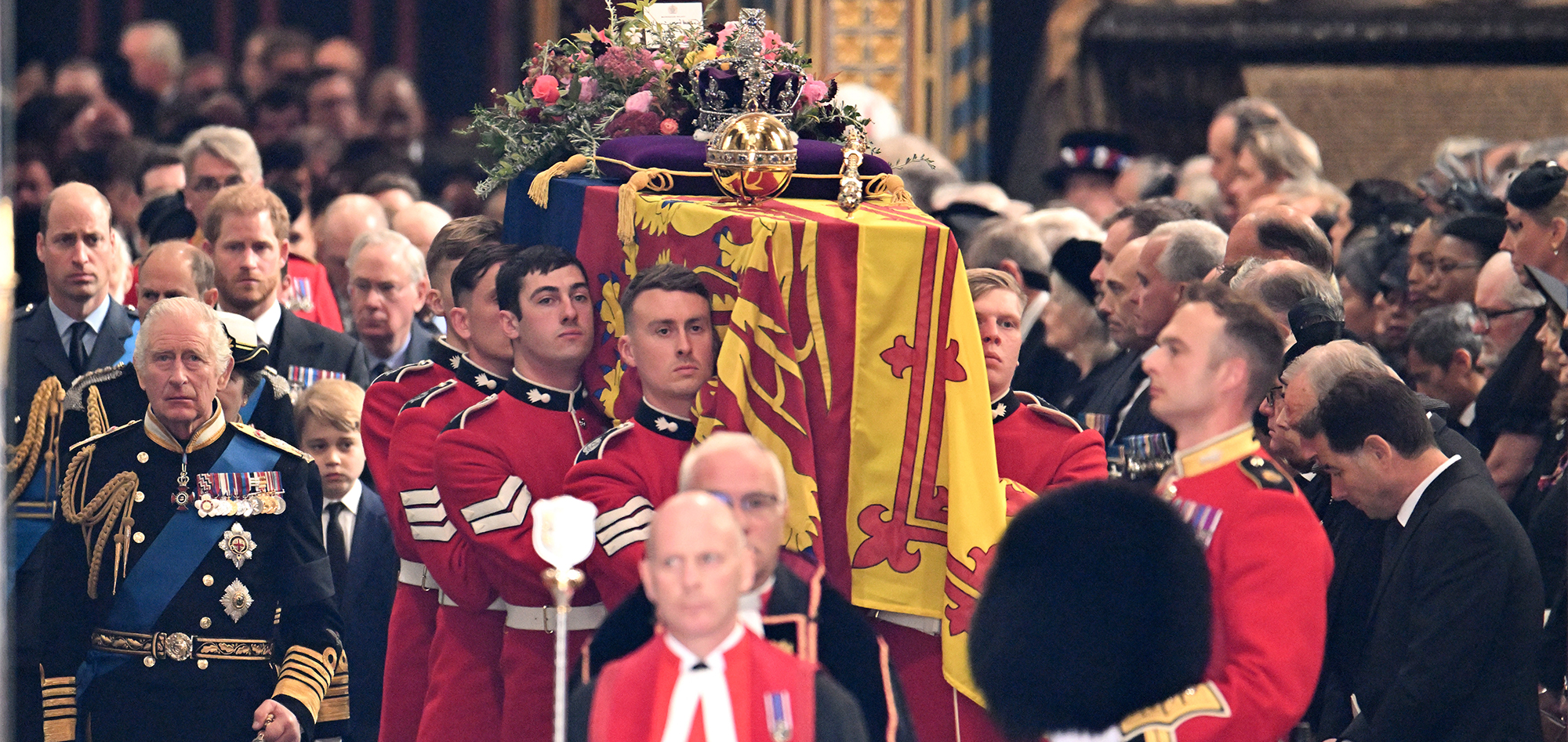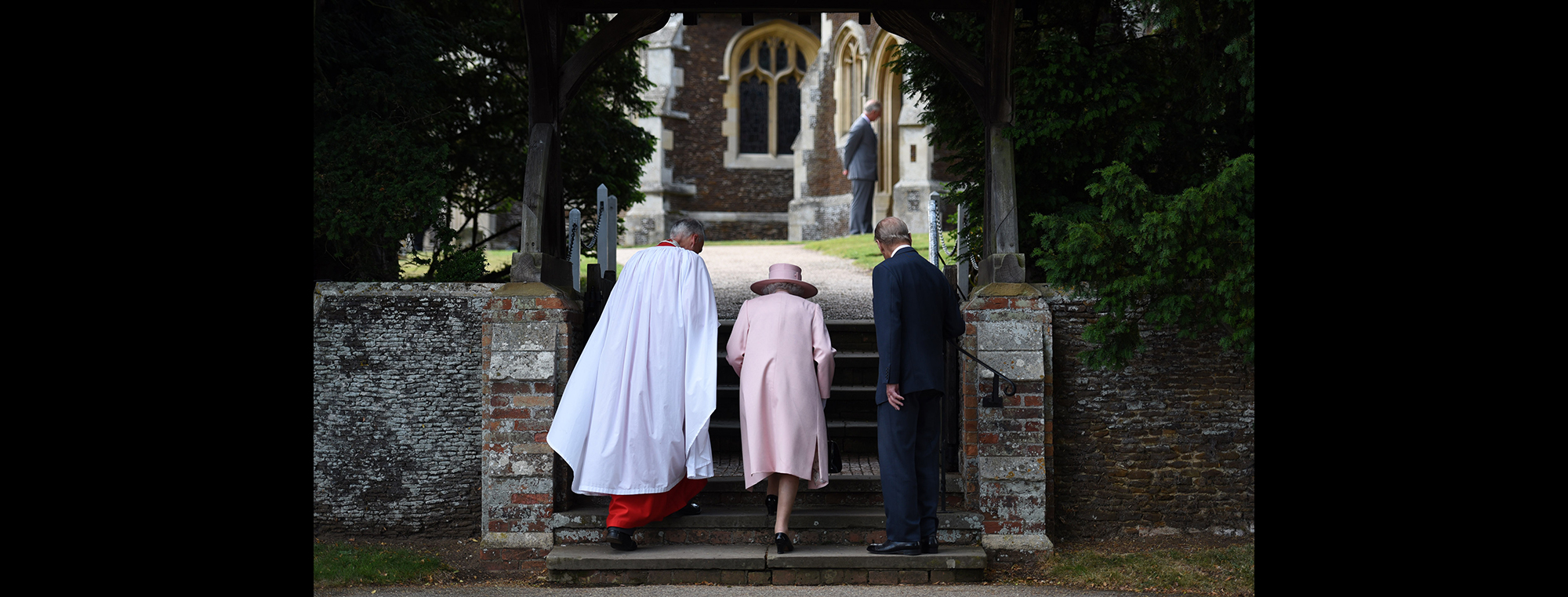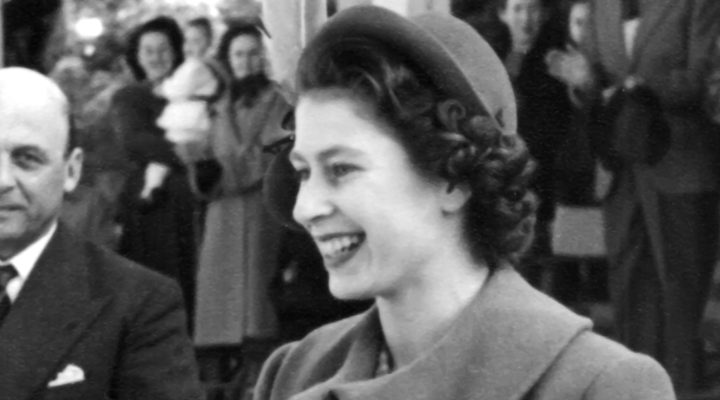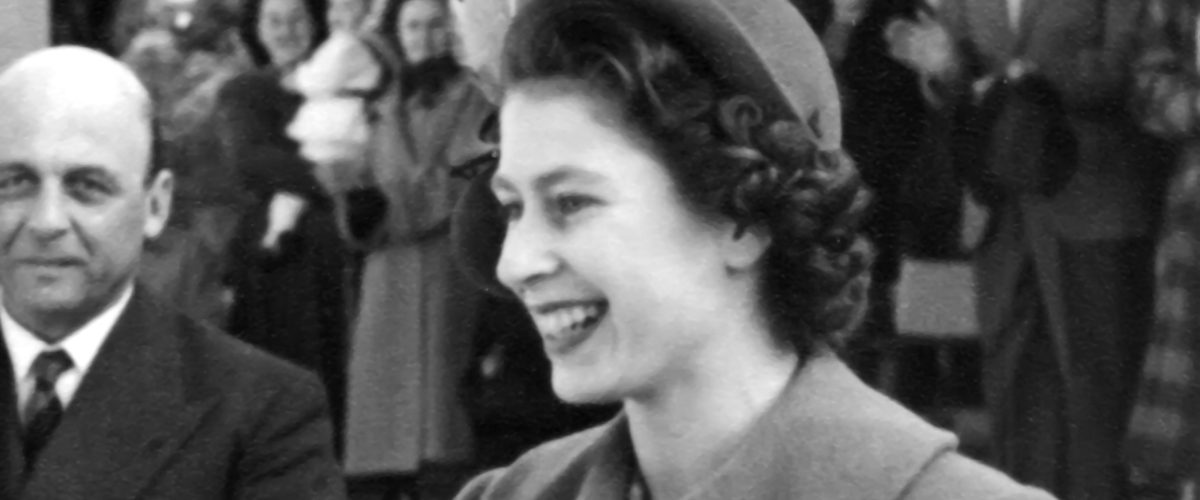“Hey, are you OK? As soon as I heard, I thought of you.”
That’s what I heard on the other end of the phone from my best friend the day Queen Elizabeth died. Why did the death of a monarch in whose country I didn’t even live have such a profound impact on me? Queen Elizabeth not only served as queen, but she also served as a main role model for two key areas in my life: faith and leadership.

Chrystal Cowan
After her passing, I couldn’t help but wonder what her death left the next generation of female faith leaders. And what did her life teach us about service, duty, humility and strength?
Elizabeth Alexandra Mary was born in London in 1926. The daughter of a duke, Elizabeth never was meant to become head of the Church of England, or for that matter, queen of the United Kingdom.
Elizabeth grew up with very simple passions in her heart — horses, family, her dogs and her privacy. Until the abdication of her uncle, King Edward VIII, Elizabeth’s life and her dreams of the future were simple. She dreamed of being a wife and mother, living on an estate with horses. All that changed in one day by one decision that wasn’t even hers.
“She dreamed of being a wife and mother, living on an estate with horses. All that changed in one day by one decision that wasn’t even hers.”
After her father became King George VI, the future Elizabeth so longed for changed dramatically. Instead of being a wife on a horse farm, she eventually became queen and defender of the faith for millions of people and 32 countries across the world.
Elizabeth’s great-grandmother was none other than Queen Victoria, a matriarch whom the young queen chose to style herself after in duty and character. Queen Victoria is famously quoted for wishing for the Lord to come back in her lifetime. When asked why by her former chaplain, she said, “I should so love to lay my crown at his feet.”
Elizabeth modeled this same humility and reverence for God as her great-grandmother did long ago.

Prince William, Prince of Wales, King Charles III, Prince Harry, Duke of Sussex, and Catherine, Princess of Wales, watch as HM Queen Elizabeth’s coffin is carried out of the doors of Westminster Abbey during The State Funeral Of Queen Elizabeth II at Westminster Abbey on September 19, 2022, in London, England. (Photo by Karwai Tang/WireImage)
In looking at the life and legacy of this great queen, her faith is undoubtedly the cornerstone of her duty and the production of her humility. As one of the most important female leaders of the past few decades, the environment for pride and arrogance surely presented itself. Even though she was one of the most powerful women in history, she also was one of the most humble.
What caused this sense of duty and humility? It was her faith.
In 1953 at Elizabeth’s coronation, she stated: “I am sure that this, my coronation is not the symbol of a power and a splendor that are gone but a declaration of our hopes for the future, and for the years I may, by God’s grace and mercy, be given to reign and serve you as your queen.”
The balance she held for her whole life of reigning and serving solidified her as a true leader. Many people believe leadership is more of reigning, commanding and controlling. Those of us who ground ourselves in our faith know an attitude of service, humility and duty are some of the firmest building blocks of leadership one can build from.
The true King of Kings came to this earth to serve not from a throne and a palace but from conversations at wells, homes and many roadsides. Even though Elizabeth was granted a throne and palaces, she didn’t use grandeur to force respect. She gained respect through her choice to serve the commonwealth and her church through bravery, prayer and constant duty to her country over her dreams.
“Even though Elizabeth was granted a throne and palaces, she didn’t use grandeur to force respect.”
Even as recently as August 2022, in a letter she wrote to the Anglican bishops at the 15th Lambeth Conference, Elizabeth reminded us of her unwavering dedication to her faith. She wrote that as we were emerging from the pandemic there was a great need for the love of God, both in word and deed.
Elizabeth was a leader who knew faith in God has to have both action and heart. Over the seven decades she served as queen, she acted in the best interest of her people by her faith pushing her forward.
A prime example was in 1961 when Elizabeth went to visit Ghana in hopes of persuading them to stay within the fold of the commonwealth and resist the communist influence of the Soviets. During her visit, she famously danced the fox-trot with Ghanaian President Nkrumah. This was done only six months after the Ku Klux Klan firebombed a bus of Freedom Riders in America.
Her actions during the Civil Rights movement showed a leader who was not afraid to act for the morality of her faith. Through dancing with President Nkrumah, Elizabeth sent a clear picture worldwide that racism is not Christian, and as the defender of the faith, she would take whatever action she needed so her faith would be defended.
In that same 2022 letter, Elizabeth wrote: “Throughout my life, the message and teachings of Christ have been my guide and in them I find hope. It is my heartfelt prayer that you will continue to be sustained by your faith in times of trial and encouraged by hope in times of despair.”
“Throughout my life, the message and teachings of Christ have been my guide and in them I find hope.”
Over the seven decades she served on the throne, Elizabeth experienced some major trials in life. The sudden passing of her father when she was only 25 years old, which instantly made her queen. In the 1990s, she witnessed the breakup of the marriages of three of her four children. Her home at Windsor Castle caught fire in 1992. Princess Diana passed in 1997, and both her mother and sister passed within two months of each other in 2002.
Through the tragedy of life, her faith sustained her. In the face of tragedy, a leader looks inward to a firm foundation to take each day at a time and move forward. Through those most difficult days, she was still queen.
Each year at Christmas the queen gave a Christmas broadcast; in 2014 she said, “For me, the life of Jesus Christ, the Prince of Peace … is an inspiration and an anchor in my life.”

Prince Charles stands in the distance as Queen Elizabeth II, Prince Phillip and Archbishop of Canterbury Justin Welby arrive to the Church of St Mary Magdalene on the Sandringham Estate for the Christening of Princess Charlotte of Cambridge on July 5, 2015, in King’s Lynn, England. (Photo by Mary Turner – WPA Pool/Getty Images)
Elizabeth led by both action and heart. As the decades continued, she grew in her confidence as a leader — admitting mistakes, taking stands and believing in her voice as a leader all while remaining humble and dedicated to her role in the church.
Dudley Delffs, author of The Faith of Queen Elizabeth, describes her popularity and confidence as a leader: “Numerous factors contribute, including her majesty’s intelligence, humility, humor, poise and grace under pressure. She is authentically herself. The queen exudes a kind of confidence that cannot be contrived. In addition, she has sustained that poise for over seven decades and through numerous crises, both personal and political. At the heart of this confidence, we glimpse her majesty’s faith in God.”
True confidence cannot be faked, in the end, the truth will come out. What Queen Elizabeth developed was not false confidence; she had a true belief that her role made a difference and that the Lord had given her this job to leave the world better than she found it.
Elizabeth Alexandra Mary was an inspiration to all women of faith on their leadership journey — one of the strongest, most loyal and dutiful examples of female leadership this world has ever seen.
What does her example mean for the female faith leaders who are still showing up each day in pursuit of God? Here are four lessons in leadership modeled by the queen.
- Establish an internal and external foundation for your faith. The word that comes to mind from the life of the queen is “balance.” She had to maintain a very external presence and faith. With that high external demand, an equally high demand was placed on her internal faith. As we step out or move up in leadership roles, we also must be aware of the demands placed on us and make sure our internal faith stays in balance with what we are putting out in the world.
- Remain grounded in Christ’s humility no matter how high you may rise in leadership. Elizabeth was not aware until late childhood that she would one day become queen. I believe this provided for her a humble foundation that lasted as she rose to the highest office in Great Britain. As we rise, remember the beginnings not just of our life but the life of Christ. A king born in a stable, not in a palace, living a servant’s life in pursuit of the will of God. May we all, no matter our title, pursue humility in our roles.
- Build a circle around you to push you and protect you. Trust is extremely hard to give and very easily taken away. When the queen took the throne, many people sought to manipulate the mind of their new monarch. Very early on she had to learn who to trust and keep her circle tight. Scripture even tells us to “cast not pearls before swine.” Not everyone will be on your team, but if you are deliberate and intentional, pray for the right circle, seek mentors, embrace family and friends, then you will find you are in the midst of a team that pushes you toward your goals and fights your battles with you.
- Never linger too long on the hand you have been dealt but focus on how to make this hand your own. Elizabeth had a plan for her life, but God had a different one. Her life included many privileges and honors but twice as many hardships and restrictions. She had to place her wants and desires aside for the good of the country. She found a way, though, to make the life she was given her own. Life is never going to go as planned, but what we can do is wake up each day, see what we have to work with and make it our own.
Chrystal Cowan graduated from Belmont University in Nashville in 2020 with a master’s degree and currently serves as a children’s minister in Arkadelphia, Ark., where she lives with her husband, Colton. She is passionate about theology, community, dogs and history, and you can most likely find her with a warm cup of Earl Grey tea in hand.
Related articles:
King Charles should abolish the term ‘Defender of the Faith’ | Opinion by Michael Friday
The monarchy Christians | Opinion by Rodney Kennedy
An angry tweet about colonialism while others pay tribute to Queen Elizabeth
Womanhood, white Christian nationalism and Queen Elizabeth | Opinion by Greg Garrett
I love the recognition of a life, but the obsession with the monarchy still bothers me | Opinion by Russ Dean
Condolences and clarity concerning the death and life of Queen Elizabeth | Opinion by Wendell Griffen


